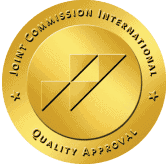You deserve compassionate, evidence-based treatment that addresses both your sleep concerns and addiction challenges. Professional treatment centers in San Diego understand that Ambien dependency affects every aspect of your life, from your physical health to your relationships and daily functioning.
Recovery from Ambien addiction is possible with the right support and treatment approach. You don’t have to face this struggle alone – specialized programs are available to help you reclaim your life and develop healthy sleep patterns without dependence on medication.
Take your first step toward freedom from Ambien addiction today.
What are the signs of Ambien addiction you should recognize?
Recognizing Ambien addiction early can be life-saving. You may be struggling with Ambien dependency if you experience several concerning patterns that indicate your relationship with this sleep medication has become problematic.
Physical signs often appear first. You might notice that you need increasingly larger doses to achieve the same sleep effects, or you experience uncomfortable symptoms when you try to stop taking Ambien. Your body may have developed a tolerance that makes normal doses ineffective.
Behavioral changes frequently accompany Ambien addiction:
- Taking larger doses than prescribed by your doctor
- Using Ambien during daytime hours or staying awake after taking it
- Seeking multiple prescriptions from different doctors
- Purchasing Ambien illegally when prescriptions run out
- Lying to family members about your medication use
- Neglecting work, school, or family responsibilities
- Engaging in dangerous activities while under the influence
- Experiencing memory blackouts or gaps in recollection
- Continuing use even when it causes relationship problems
- Feeling anxious or panicked when your supply runs low
Psychological symptoms can be equally concerning. You may find yourself obsessing about when you can take your next dose, or feeling unable to sleep without Ambien even when you’re exhausted. Many people report feeling trapped by their dependence on the medication.
Professional treatment centers recognize that Ambien addiction often develops gradually, making it difficult for individuals to realize when therapeutic use has crossed into dependency. If you identify with these signs, seeking professional evaluation can provide clarity and direction for your recovery journey.
What are the dangerous withdrawal symptoms of Ambien?
Ambien withdrawal can be medically serious and potentially life-threatening without proper supervision. You should never attempt to stop Ambien abruptly, especially if you’ve been using it regularly for extended periods or in higher doses than prescribed.
Withdrawal symptoms typically begin within 6-8 hours after your last dose and can intensify rapidly. The severity depends on factors like how long you’ve been using Ambien, your typical dosage, and your individual physiology.
Early withdrawal symptoms you may experience include:
- Severe rebound insomnia that’s worse than your original sleep problems
- Intense anxiety and panic attacks
- Hand tremors and muscle weakness
- Rapid heartbeat and elevated blood pressure
- Excessive sweating and hot flashes
- Nausea, vomiting, and stomach cramping
- Headaches and dizziness
- Confusion and difficulty concentrating
- Mood swings and irritability
- Heightened sensitivity to light and sound
More severe withdrawal complications can develop, particularly in cases of heavy or prolonged use:
- Visual and auditory hallucinations
- Delirium and disorientation
- Seizures, which can be life-threatening
- Extreme agitation and paranoia
- Dangerous changes in heart rhythm
- Severe dehydration from vomiting
The peak intensity typically occurs within 1-5 days, but some symptoms can persist for weeks. Professional treatment centers use medically supervised protocols to minimize these risks and ensure your safety throughout the withdrawal process.
Medical supervision becomes essential because Ambien withdrawal can be unpredictable. Healthcare professionals can provide medications to ease symptoms, monitor your vital signs, and intervene immediately if complications arise.
How does professional Ambien addiction treatment work?
Professional Ambien addiction treatment follows a comprehensive approach that addresses both the physical dependence and underlying factors contributing to your sleep medication misuse. Treatment centers design individualized programs based on your specific needs, medical history, and personal circumstances.
The treatment process typically begins with a thorough assessment. You’ll work with medical professionals and addiction specialists who evaluate your current health status, the extent of your Ambien use, any co-occurring mental health conditions, and your support system. This evaluation helps determine the most appropriate level of care for your situation.
Medical stabilization forms the foundation of treatment. Healthcare providers create a safe tapering schedule that gradually reduces your Ambien dosage while managing withdrawal symptoms. This process requires careful monitoring because abrupt discontinuation can trigger dangerous complications.
Treatment centers typically offer multiple levels of care that work together as a continuum:
Drug rehab provides 24-hour medical supervision and intensive therapeutic support. You’ll receive round-the-clock care while your body adjusts to functioning without Ambien. This level of care is often recommended for individuals with severe dependence or those who have experienced complications during previous withdrawal attempts.
Partial hospitalization program (PHP) offers intensive daily treatment while allowing you to return home each evening. PHP typically involves 6-8 hours of structured programming five days per week, including medical monitoring, individual therapy, group counseling, and sleep hygiene education.
Intensive outpatient program (IOP) provides structured treatment sessions multiple times per week while maintaining greater flexibility for work and family obligations. IOP usually involves 3-4 hours of programming three times weekly, focusing on relapse prevention and coping skill development.
Outpatient program (OP) offers ongoing support through weekly individual and group therapy sessions. This level of care helps maintain recovery progress while you fully reintegrate into daily life.
Treatment centers emphasize that recovery from Ambien addiction involves more than just stopping the medication. You’ll learn healthy sleep hygiene practices, stress management techniques, and strategies for managing the underlying issues that may have contributed to your dependence.
The most effective therapies for Ambien addiction recovery
Evidence-based therapeutic approaches form the cornerstone of successful Ambien addiction treatment. Professional treatment centers use proven methodologies that address both the addiction itself and the sleep disorders that often accompany Ambien dependence.
Cognitive Behavioral Therapy (CBT) represents one of the most effective treatments for Ambien addiction. You’ll work with trained therapists to identify thought patterns and behaviors that contribute to your medication dependence. CBT helps you develop healthier coping mechanisms for stress, anxiety, and sleep difficulties.
Cognitive Behavioral Therapy for Insomnia (CBT-I) specifically targets sleep disorders without relying on medication. You’ll learn techniques for improving sleep quality naturally, including sleep restriction therapy, stimulus control, and relaxation training. This specialized approach addresses the root causes of sleep problems that may have led to Ambien dependence.
Individual therapy sessions provide personalized attention to your unique circumstances. You’ll explore underlying factors that contributed to your addiction, such as trauma, anxiety disorders, or chronic stress. Therapists help you develop personalized strategies for maintaining sobriety and managing triggers.
Group therapy offers peer support and shared learning experiences. You’ll connect with others who understand the challenges of Ambien addiction, sharing insights and encouragement. Group sessions often focus on specific topics like relapse prevention, family relationships, or workplace stress management.
Family therapy addresses the impact of addiction on your relationships and support system. Treatment centers recognize that addiction affects entire families, and involving loved ones in the recovery process can significantly improve outcomes. Family sessions help rebuild trust and establish healthy communication patterns.
Medication-assisted treatment may be appropriate for some individuals. Psychiatrists can prescribe non-addictive sleep aids or medications to address underlying anxiety or depression that contributed to Ambien misuse. All medications are carefully monitored to prevent new dependencies.
Holistic therapies complement traditional approaches by addressing your overall well-being. Treatment centers may offer yoga, meditation, acupuncture, or massage therapy to help manage stress and promote natural relaxation. These techniques provide healthy alternatives to medication for managing anxiety and sleep difficulties.
Sleep hygiene education teaches practical strategies for improving sleep quality without medication. You’ll learn about optimal sleep environments, bedtime routines, and lifestyle factors that influence sleep patterns. This education is crucial for preventing relapse and maintaining long-term recovery.
Why San Diego offers exceptional Ambien addiction treatment
San Diego’s treatment landscape provides unique advantages for individuals seeking recovery from Ambien addiction. The region’s combination of medical expertise, therapeutic innovation, and supportive environment creates optimal conditions for successful treatment outcomes.
Treatment centers in San Diego benefit from the area’s concentration of medical professionals and research institutions. You’ll have access to addiction specialists, sleep medicine experts, and mental health professionals who stay current with the latest treatment developments. This expertise ensures you receive evidence-based care that reflects current best practices.
The climate and natural environment support healing and recovery. San Diego’s year-round mild weather allows for outdoor therapeutic activities that can improve mood and reduce stress naturally. Many treatment centers incorporate outdoor elements into their programs, recognizing the mental health benefits of nature exposure.
San Diego’s diverse population means treatment centers have experience working with individuals from various cultural backgrounds and life circumstances. You’ll find programs that understand and respect different cultural approaches to health and recovery, ensuring your treatment feels personally relevant and respectful.
The region’s focus on wellness and healthy living aligns well with addiction recovery goals. San Diego’s culture emphasizes physical fitness, healthy eating, and stress management – all important components of sustainable recovery from Ambien addiction. You’ll find numerous resources for maintaining healthy lifestyle changes after treatment.
Treatment centers in San Diego often collaborate with local sleep medicine clinics and primary care providers, ensuring continuity of care as you transition from addiction treatment to ongoing health management. This coordination helps address both your addiction recovery and any underlying sleep disorders that contributed to Ambien dependence.
The area’s strong recovery community provides ongoing support beyond formal treatment. San Diego hosts numerous support groups, sober social activities, and recovery-focused events that help maintain long-term sobriety. Building connections within this community can provide lasting support for your recovery journey.
What to expect during your Ambien addiction treatment journey
Your treatment journey begins the moment you decide to seek help for Ambien addiction. Understanding what to expect can reduce anxiety and help you prepare mentally for the recovery process ahead.
Initial contact with a treatment center typically involves a confidential phone assessment. You’ll speak with trained professionals who understand Ambien addiction and can provide immediate support and guidance. This conversation helps determine the most appropriate level of care and can often be scheduled within 24-48 hours.
The intake process involves comprehensive evaluation of your medical history, current health status, and treatment needs. You’ll meet with medical professionals, addiction counselors, and possibly psychiatric specialists who will assess your situation thoroughly. This evaluation typically takes several hours and forms the foundation of your personalized treatment plan.
If you require medical supervision for withdrawal, you’ll be closely monitored by healthcare professionals who specialize in Ambien discontinuation. Your vital signs, comfort level, and mental state will be assessed regularly. Medical staff can provide medications to ease withdrawal symptoms and ensure your safety throughout the process.
Your daily routine in treatment will be structured but supportive. You’ll participate in individual therapy sessions, group counseling, educational workshops, and therapeutic activities. Treatment centers balance intensive therapeutic work with time for rest, reflection, and personal care.
As you progress through treatment, you’ll notice gradual improvements in your sleep patterns, mood stability, and overall well-being. Many individuals report feeling more mentally clear and emotionally stable as their bodies adjust to functioning without Ambien. These positive changes often motivate continued engagement in treatment.
Family involvement may be incorporated into your treatment plan. Loved ones might participate in educational sessions, family therapy, or visiting programs designed to rebuild relationships and establish healthy support systems for your recovery.
Transition planning begins early in treatment. You’ll work with your treatment team to develop strategies for maintaining sobriety after completing formal treatment. This planning includes identifying ongoing therapy resources, support groups, and lifestyle changes that support long-term recovery.
How treatment centers ensure your safety and success
Professional treatment centers prioritize your safety and success through comprehensive protocols and evidence-based practices specifically designed for Ambien addiction recovery. These facilities understand the unique challenges of sleep medication dependence and have developed specialized approaches to address them effectively.
Medical safety protocols ensure your physical well-being throughout treatment. Healthcare professionals monitor your vital signs, assess withdrawal symptoms, and adjust treatment plans based on your individual response. Emergency medical procedures are always available, and staff are trained to recognize and respond to potential complications immediately.
Individualized treatment planning recognizes that every person’s experience with Ambien addiction is unique. You’ll work with a multidisciplinary team that includes physicians, addiction counselors, therapists, and support staff who collaborate to create a treatment approach tailored to your specific needs, medical history, and recovery goals.
24-hour support availability means you’re never alone during the most challenging aspects of recovery. Whether you’re experiencing withdrawal symptoms, sleep difficulties, or emotional distress, trained professionals are available to provide immediate assistance and support.
Evidence-based treatment protocols ensure you receive interventions that have been scientifically proven effective for Ambien addiction. Treatment centers regularly update their approaches based on current research and best practices in addiction medicine and sleep disorder treatment.
Dual diagnosis capabilities address co-occurring mental health conditions that often accompany Ambien addiction. Many individuals develop sleep medication dependence while managing anxiety, depression, or other psychiatric conditions. Treatment centers provide integrated care that addresses both addiction and mental health simultaneously.
Medication management services ensure safe and appropriate use of any medications during treatment. Psychiatrists and medical professionals carefully monitor all prescriptions, avoiding potentially addictive substances while addressing legitimate medical needs.
Relapse prevention planning begins early in treatment and continues throughout your recovery journey. You’ll learn to identify personal triggers, develop coping strategies, and create action plans for managing high-risk situations. This preparation significantly improves long-term success rates.
Quality assurance measures ensure treatment centers maintain high standards of care. Facilities undergo regular accreditation reviews, staff receive ongoing training, and treatment outcomes are monitored to ensure effectiveness. These measures protect your investment in recovery and maximize your chances of success.
Frequently asked questions about Ambien addiction treatment
Treatment duration varies based on individual factors including the severity of your addiction, length of Ambien use, and personal circumstances. Drug rehab programs typically last 30-90 days, providing intensive medical supervision and therapeutic support. Partial hospitalization program (PHP) usually continues for 2-4 weeks, offering daily intensive treatment while you maintain some independence.
Intensive outpatient program (IOP) often lasts 8-12 weeks, allowing you to continue work or family responsibilities while receiving structured treatment. Outpatient program (OP) may continue for several months or longer, providing ongoing support as you maintain recovery in your daily life.
Many individuals benefit from a step-down approach, beginning with more intensive care and gradually transitioning to less intensive programs as they build recovery skills and confidence. Your treatment team will regularly assess your progress and adjust the duration based on your individual needs and recovery goals.
Relapse is often part of the recovery process rather than a treatment failure. Treatment centers understand that addiction is a chronic condition that may involve setbacks, and they’re prepared to help you get back on track quickly and safely.
If you use Ambien during treatment, you should inform your treatment team immediately. Medical professionals need to assess your safety and adjust your treatment plan accordingly. Honesty about relapse allows your team to provide appropriate medical care and modify therapeutic approaches to better address your specific challenges.
Treatment centers typically view relapse as valuable information about what triggers or situations need more attention in your recovery plan. You’ll work with counselors to understand what led to the relapse and develop stronger coping strategies for similar situations in the future.
Your treatment may be extended or intensified following a relapse. You might move from a less intensive program back to a more structured level of care temporarily. This adjustment helps ensure you have adequate support while rebuilding your recovery foundation.
Yes, reputable treatment centers are equipped to manage Ambien addiction alongside other medical conditions. Many individuals seeking treatment have co-occurring health issues, and integrated care is essential for successful recovery.
Medical professionals will review all your current medications and health conditions to ensure safe treatment protocols. They may need to adjust certain medications or coordinate with your other healthcare providers to maintain your overall health while addressing the addiction.
Common co-occurring conditions include anxiety disorders, depression, chronic pain, and other sleep disorders. Treatment centers often have psychiatrists and medical specialists who can address these conditions using non-addictive approaches while you recover from Ambien dependence.
Your treatment plan will be carefully coordinated to ensure all your health needs are met safely. This might involve working with your primary care physician, specialists, or other healthcare providers to maintain continuity of care for ongoing medical conditions.
Most major insurance plans provide coverage for addiction treatment, including Ambien addiction programs. The Mental Health Parity and Addiction Equity Act requires insurance companies to provide coverage for substance abuse treatment comparable to other medical conditions.
Coverage typically includes drug rehab, partial hospitalization program (PHP), intensive outpatient program (IOP), and outpatient program (OP) services. The extent of coverage may vary based on your specific plan, but most insurance providers recognize addiction treatment as medically necessary care.
Treatment centers usually have insurance specialists who can verify your benefits and explain your coverage options before you begin treatment. They can also help you understand any out-of-pocket costs and explore payment options if needed.
If you don’t have insurance or your coverage is limited, many treatment centers offer sliding scale fees, payment plans, or financial assistance programs. Don’t let financial concerns prevent you from seeking help – treatment centers want to work with you to make recovery
You’ve learned that Ambien addiction can silently take hold, impacting your physical health, mental well-being, and daily life. But as you’ve also discovered, recognizing the signs and understanding the path to recovery is the first courageous step toward reclaiming your freedom.
You deserve compassionate, evidence-based treatment that addresses both your sleep concerns and addiction challenges, and that helps you develop healthy sleep patterns without dependence. You don’t have to face this struggle alone.
To take that vital step toward a life free from Ambien’s grip and to discover genuine, lasting relief, contact Assure Recovery today. Help is available, and your new life can begin now.



